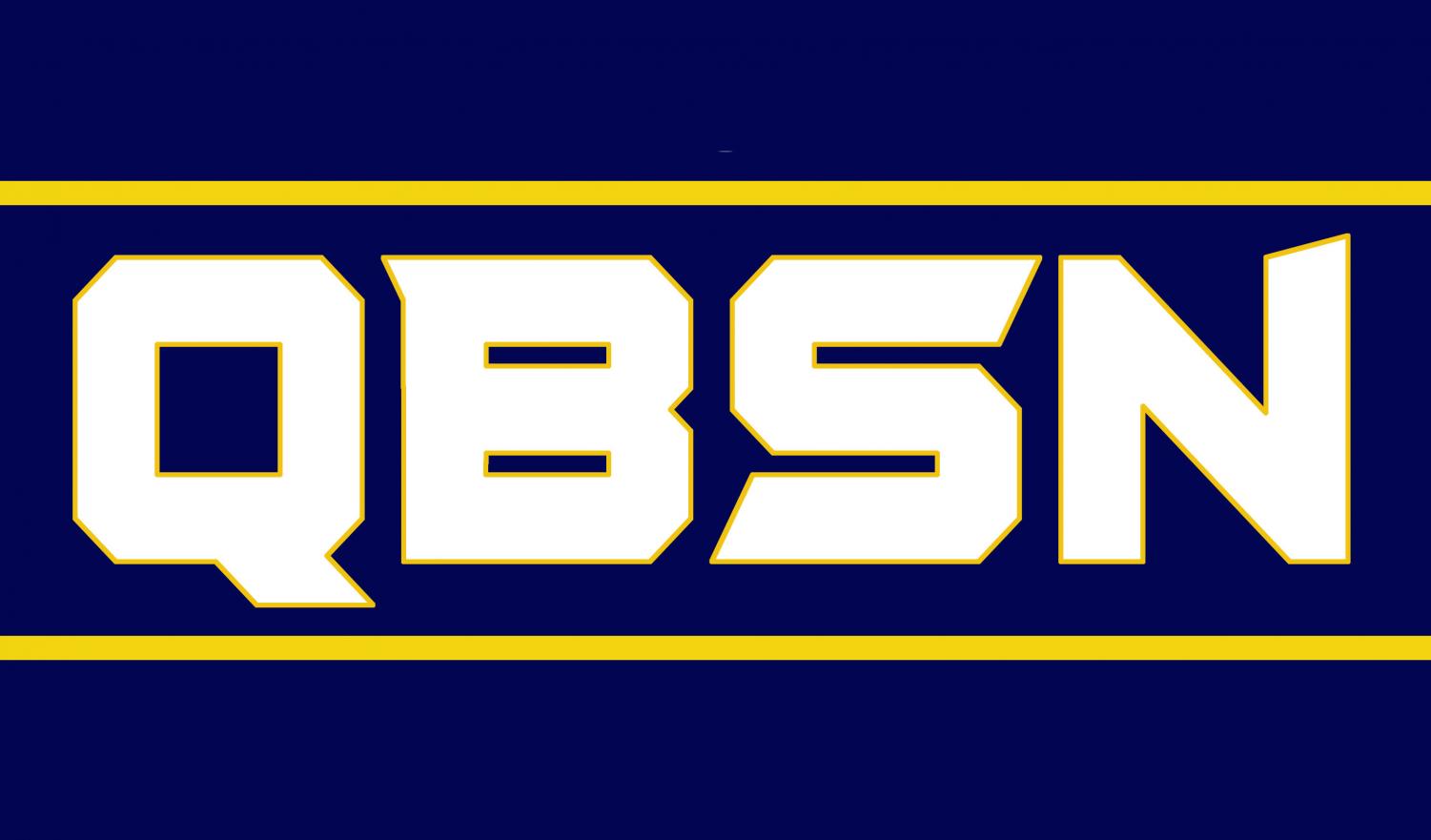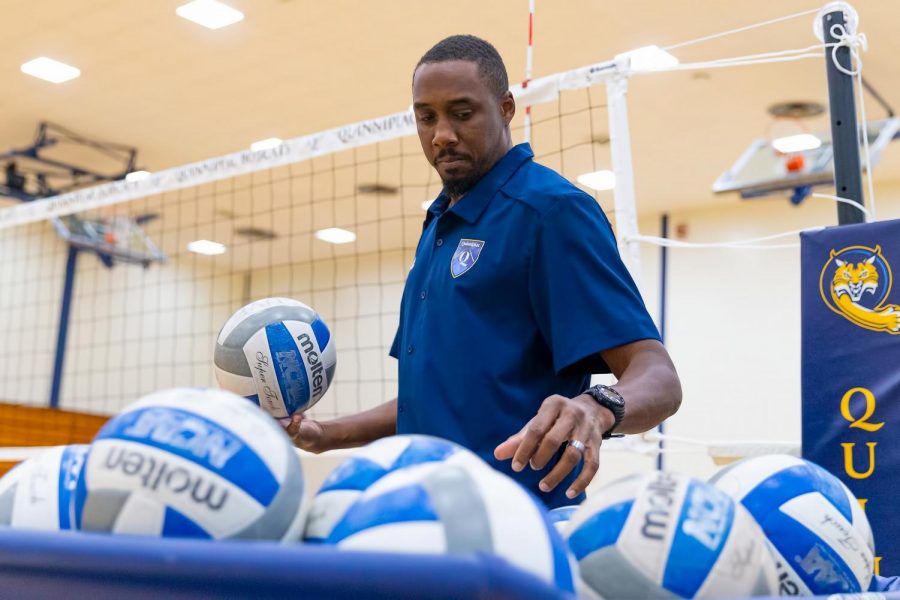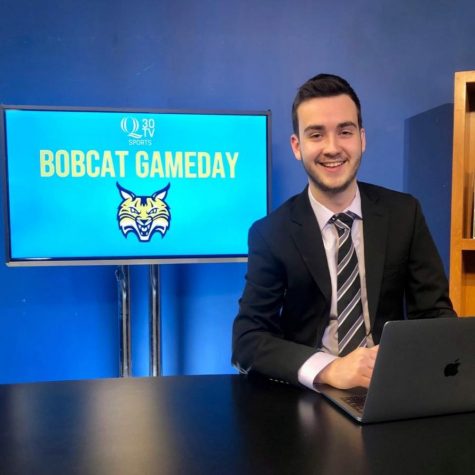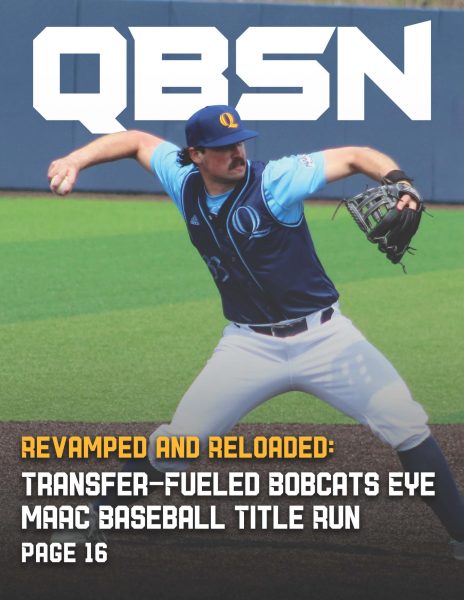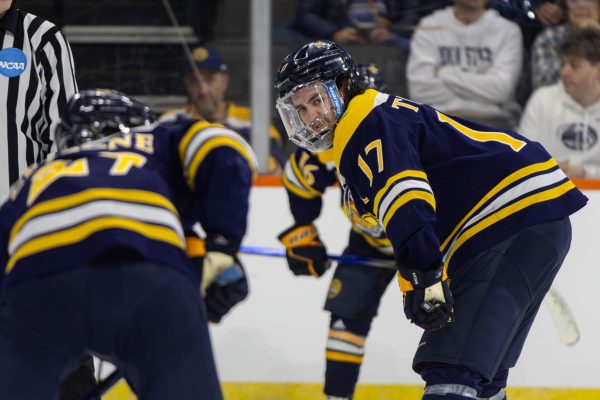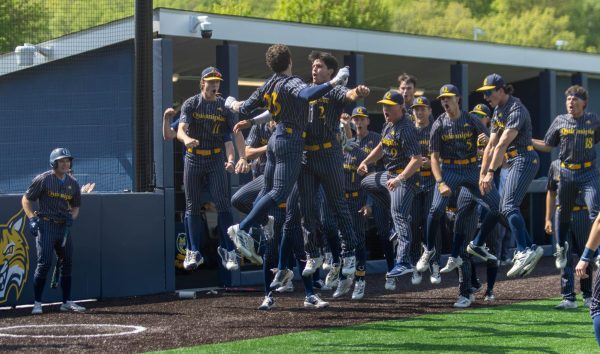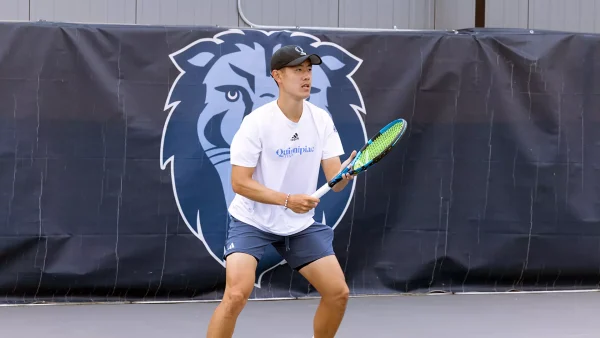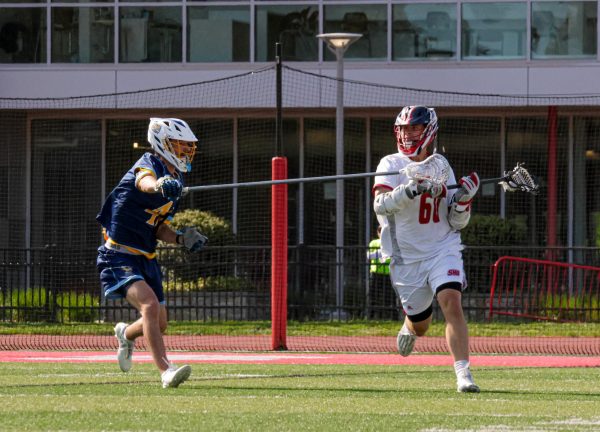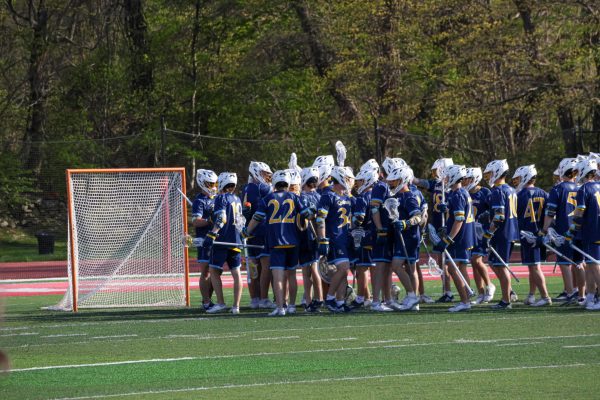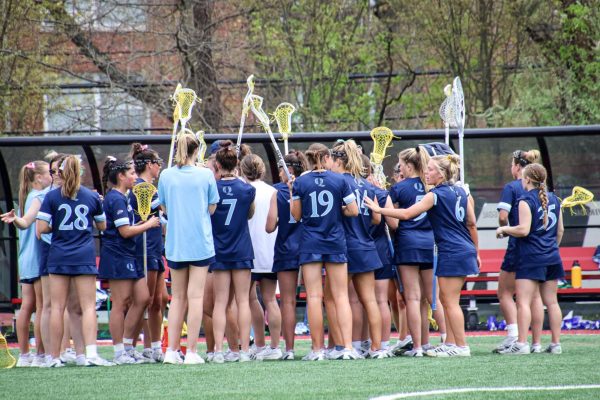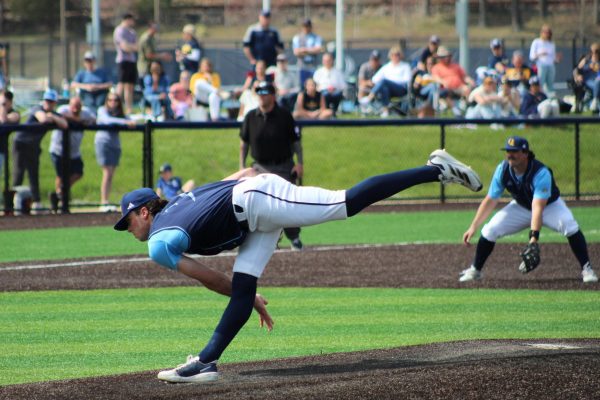Building a Legacy
November 1, 2019
Kyle Robinson, as humbly as possible, calls himself the “Professor of Volleyball.”
It’s an apt title – one that encapsulates where the 45-year-old coach has been, and where he and the Quinnipiac program are going.
“That’s my job,” Robinson said. “I teach.”
If he is going to teach the Quinnipiac volleyball team how to win, he’ll need to call on those who have taught him throughout his life. He won’t have a problem finding them.
Every morning that a teenage Kyle Robinson woke up in West Oak Lane, Philadelphia, he knew his commute to school would be anything but easy. There was, unavoidably, the cloud of drugs, crime, and incarcerations that surrounded the neighborhood. But just to make it to class on time, he would have to take three public buses.
“The XH to the 65 to the 9,” Robinson recalls. “And I passed three other high schools.”
A swimmer throughout his youth, Robinson grew tired of the early morning and late evening practices and left the sport. No longer with direction around his out-of-school hours, a math teacher, Mr. Ganon, saved him from spending too much time in the streets.
“He knew the neighborhood I grew up in and said, ‘you can’t just be hanging out in the hood, you’ve got to do something. Come down and play volleyball with us in the morning. Just get out of the neighborhood.’”
Almost instantly, he was hooked on the new game.
“I fell in love with it,” Robinson said. “Almost like in basketball when you learn to dunk, it’s like ‘oh I can dunk!’ Well here, I got that dunking feeling when I hit a ball.”
After high school, he spent two years at Philadelphia Community College – sort of. Robinson couldn’t sit in a classroom, not when there was volleyball to be played.
“I went and hung out at the YMCA and waited for guys to show up and play volleyball,” he said. “From 1992 to 1994 I was playing at the Y four, five, six nights a week.”
Robinson spent so much time at the YMCA that he was offered a job, spending time at the front desk, as a lifeguard, and in the membership office. When he wasn’t working, he was on the court.
Pickup games at the YMCA turned into a traveling tournament team. Robinson began obsessing over the sport, and people around the Northeast began to notice.
“People started saying to me, ‘dude, why aren’t you in college playing?’ I didn’t know anything about college.”
One intrigued observer was Scott Gleason, the head men’s volleyball coach at what was then known as LIU-Southampton.
“He saw me playing and came up to me and started talking about going to school,” Robinson said. “I didn’t really give it much thought because I was just into hanging out at the Y.”
Gleason, now the assistant coach at Saint Francis University, promised to call Robinson’s home phone one Sunday. Whether a call was made or not, the two never connected.
At the same tournament one year later, Gleason was waiting.
“Where have you been all year?” he had said. “We tried to contact you.”
“Within that year I had figured out that I needed to get out of Philly,” Robinson said. “It was just tough neighborhoods, drugs, crime, death, jail, destruction. I was ready to go.”
Robinson followed Gleason back to Southampton, where he became the team’s captain and earned All-American notoriety while at the school from 1995 to 1998. Without Gleason’s persistence and guidance, Robinson might still be playing at the Philadelphia YMCA.
“My parents were awesome; they taught me how to survive the streets of Philly,” Robinson said. “Gleason taught me how to survive life.”
Now fully invested in the game, Robinson found further opportunities within the game to be plentiful. Still, with communication in the 1990s being what it was, plans never fully materialized. After trying out for the U.S. national team in Colorado in 1997, he was told to expect another phone call.
The man on the other end was Tim Kelly, then an agent and former standout at UCLA, and the conversation, according to Robinson, went something like this:
“Hey, it’s Tim. Are you going to Europe with us?”
“Who is this? I still have another year of school.”
“O.K., I’ll call you in a year.”
A year went by, with Robinson earning his degree in the meantime. The phone rang again.
“Hey, are you going to Europe with us?”
“Who the hell is this?”
“It’s Tim again, I talked to you a year ago.”
“Yeah, I’m ready to go.”
“Meet me in Amsterdam on August 15.”
Robinson spent the next two weeks traveling around Europe with a team assembled by Kelly. The goal was to get the players signed by professional clubs. Zorgvliet Antwerpen, a Belgian team, decided they couldn’t let Robinson go back to the United States.
It sparked a brief but cosmopolitan professional career that saw him make additional stops in Puerto Rico, Greece, and with the U.S. national team.
“That’s not supposed to happen to a street kid from Philly,” Robinson said. “But for me, I just loved the sport. I loved what I was doing in the sport and I was never looking for the next best thing. I was just enjoying the ride and the ride just kept getting better and better. I just kept riding the wave.”
After roles on the coaching staffs of Air Force and Oklahoma, and a head position at LIU-Brooklyn, Robinson now faces the challenge of turning Quinnipiac, a once-in-a-while MAAC contender and, more often, second-division team, into a perennial powerhouse program.
It was his previous impressions of the university, as a visitor with LIU when it played Quinnipiac in the NEC, that almost prevented this new match.
“I didn’t know how amazing it is here,” Robinson said. We came here, got off the bus, would go play our match, then go stop at Tonino’s for pizza and get out of here.
“I didn’t know anything about Hamden. I didn’t know anything about Connecticut. It’s one of the most beautiful states in the country. We’re going to use what we do as a key to open doors for people to see how great it is.”
Robinson admits that winning, of course, is the goal of any program, but he plans to take a methodical and diligent approach to get there. It starts with small gestures, like speaking to his international players in their native tongues, which he tried to pick up on his various trips throughout his playing career.
“Even just with my ugly butchering of the Spanish language, it helps take down some of the walls,” Robinson said of his relationship with senior libero Alejandra Rodriguez of Puerto Rico.
“It helps them understand, ‘this guy is legit.’ It’s just a way to connect, and that’s all we’re trying to do. It’s a people business.”
Success will come for the Quinnipiac volleyball team, but no one is hiding the fact that it will take time. Robinson is here for that process.
“Every coach always wants it to be this perfect, beautiful thing, and as much as I want our team to be that masterpiece, my enjoyment of the job is building it – building a legacy.”


